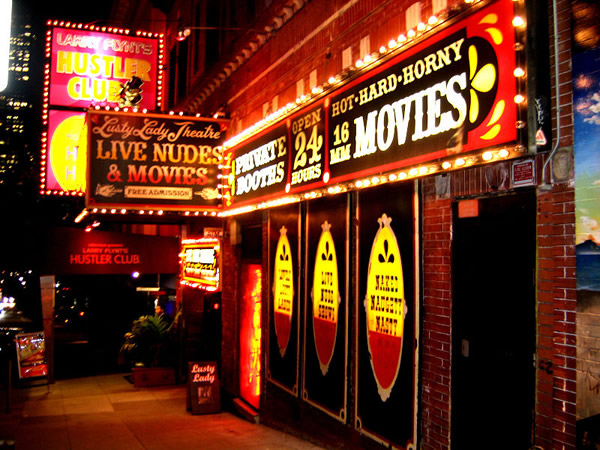
Michael Greene, NARAS President and CEO
During last night’s Grammy awards, Michael Greene, President and CEO of the National Academy of Recording Arts and Sciences (NARAS) delivered an anti-file sharing speech entitled The Insidious Virus of Illegal Music Downloading. Some excerpts:
No question the most insidious virus in our midst is the illegal downloading of music on the Net. It goes by many names and its apologists offer a myriad of excuses. This illegal file-sharing and ripping of music files is pervasive, out of control and oh so criminal. Many of the nominees here tonight, especially the new, less-established artists, are in immediate danger of being marginalized out of our business. Ripping is stealing their livelihood one digital file at a time, leaving their musical dreams haplessly snared in this World Wide Web of theft and indifference.
…
This problem won’t be solved in short order. It’s going to require education, leadership from Washington and true diligence to help our fans – that would be you – to embrace this life and death issue and support our artistic community by only downloading your music from legal Web sites. That will ensure that our artists reach even higher and, deservedly, get paid for their inspired work.
Life and death issue? I think NARAS should get over themselves.
It’s fandom, not theft
Greene squarely puts the blame for the music industry’s woes — woes most industries would kill for — on the customer. This, in spite of the fact that music sales were up during the peak of Napster. What he doesn’t realize — or more likely, what he realizes but chooses not to say — is that nobody “rips” (that is, converts CD music to MP3 format) music they hate. It’s a waste of time. Rather, they rip the tracks they love, and those are the files they share. No money changes hands in the file sharing process; no one — not even the Napster corporation — made money from the transfer of MP3 files. This isn’t piracy; it’s fandom. And unlike piracy, fandom is free advertising. They don’t like nor understand this, which is why they also consider making mixed tapes and CDs for your friends illegal.
They’re not too keen on the doctrine of fair use. If you have a favourite CD that you want to keep at home, they’d rather you bought another one for your car and another one for work instead of making copies for car and office use, even though that’s considered to be fair use in the eyes of the law. Here’s RIAA president Hillary Rosen and Utah Senator Orrin Hatch at a Senate Judiciary Committee hearing on MP3 downloading, courtesy of Leflaw.net:
”Can I make a copy of a CD that I buy and put it into a car?” asked Hatch. When Rosen hemmed and hawed, Hatch muttered, ”The answer is yes.”
”Is it fair use to give the copy to my wife for her car?” Hatch continued. ”Is it fair use for me to rip a CD? Is it fair use if (a computer network) decides for efficiency reasons that one copy is sufficient to serve for storage, instead of keeping 200 separate copies, is that fair use?”
”None of these is fair use,” Rosen eventually replied. She argued that musicians’ willingness to ”tolerate” people making copies was an instance of ”no good deed goes unpunished.”
They’re taking intellectual property protection to ridiculous new heights. The music industry would love nothing better than for you to shell out extra ducats in order for you to know what the lyrics and chords to your favourite songs are. That’s why the Harry Fox Agency tried to shut down or neuter OLGA — the On-Line Guitar Archive — and several other sites providing lyrics, tablature and chord charts. Listening to your favourite piece of music over and over again so that you can transcribe its lyrics and chords and then sharing that information isn’t a crime — once again, it’s fandom.
Recently, Pete Abrams, in his great online comic Sluggy Freelance, used the lyrics to James Taylor’s Fire and Rain to underline his storyline. He credited the creator and copyright holder, but still he was told to takes the lyrics out of the comic strip. The songs wasn’t central to the storyline; as Abrams himself puts it, “…the lyrics were just icing on the cake of this story…Actually it’s the little decorative flowers that go on the frosting of the cake.” It was merely a nice detail, and an act of fandom, not theft.
They’ve gone so far as to try and make money off cell phone ring tones that sound like your favourite tunes. Once again, that’s fandom, not theft. How much longer before your keyboard, guitar or accordion is embedded with a device that pays royalties whenever you cover a recording artist’s song, even for family and friends?
In all these cases, we’re not talking about acts of taking someone else’s work and making a profit of it. We’re not even talking about people who are taking credit for someone else’s work. We’re talking about fans who love the work so much that they use it, which in turn further propagates that work. This is advertising that is not only free, it’s done by people who truly love the work, not some disinterested ad exec who’s only promoting the work because s/he’s paid to do so. It’s honest and from the heart. It is not piracy.
The patsies

The patsies who participated in the downloading experiment-cum-publcity stunt. The filename of this picture is “hackers.jpg”.
During the Grammys, the cameras would occasionally cut to a scene where three college-age students, Numair, Stephanie and Ed, were downloading MP3s. It was part of a demonstration of the evils of downloading. Greene announced that they were showing just how many files could be downloaded by only three people in two days. These three patsies — or perhaps they’re doing this as part of some community service in exchange for time in juvie — managed to download almost 6,000 songs.
“That’s three kids, folks,” said Greene “The RIAA estimates that – now listen to this – an astounding 3.6 billion songs are illegally downloaded every month.”
In an attempt to paint computer programmers as part of the problem, the on-line photo of the three patsies is called “hackers.jpg”. The term hacker refers to a obsessively dedicated programmer, and even the correct term — cracker — refers to someone who breaks into computer systems, not someone who is downloading files.
By the way, if any you happen to know Numair, Stephanie or Ed, by all means feel free to give them a good pimp-slapping in my name.
Do you suppose they have any friends left after last night’s Grammy awards?
Forgive the ad hominem cheap shot, but I can’t resist
Mr. Greene, I respectfully suggest that you stop harassing the customers, and while you’re at it, stop harassing your own executives too.
Recommended Reading
The RIAA sucks donkey balls. Here’s proof. Want more proof? Here’s an article on how they’d love to look inside your computer.
George at blogaritaville reports that “the government, two gigantic content distributors, two consumer electronics manufacturers (one of whom owns a substantial MPEG/MP3 patent portfolio), a router company, and a chip company are getting together to debate your rights as a content consumer.” Hmmm. Around the same time as Greene’s speech at the Grammys. Funny, that.
Memo to George: Please use capital letters at the start of your sentences. It makes ’em easier to read. The e.e. cummings / archy-and-mehithabel thing is pretty old.
Support the good guys in this battle against industries who are deciding what you rights are. The Electronic Frontier Foundation is on the side of the consumer in the current imbroglio over copyright and fair use. They’re the good guys, and really stand-up people whom I know personally and for whom I would take a bullet. (Cory, Fred, Cindy, Brad, and Biella: please don’t put this to the test.)
Update, Friday March 1.
Welcome BoingBoing readers!
George at blogaritaville points out in this posting that “unless the artist had recouped for the record label, the band that made the music on the CD wasn’t going to make any money off their purchase, anyway.” He also points to a Steve Albini (producer for Nirvana’s Bleach and In Utero albums) essay, The Problem With Music. Oftentimes artists end up losing money when they make an album because the record industry middleswine have taken their inordinately large slice of the pie.
You might want to check my earlier postings on copyright and fair use, Death to Disney, Part One and Death to Disney, Part Two. Read about the influential Disney guy who says that there is no right to fair use, learn about copyright and how it’s been stolen away from recording artists, find out what this fair use thing is and what the RIAA really thinks about it. Then write your government representative!
Nick Mark of Naked Pope: The Movie fame reminded me of this funny Onion piece called Kid Rock Starves to Death: MP3 Piracy Blamed.



 The sign had four of those red circles with the red diagonal bar cutting across an image within the circle.
The sign had four of those red circles with the red diagonal bar cutting across an image within the circle.
